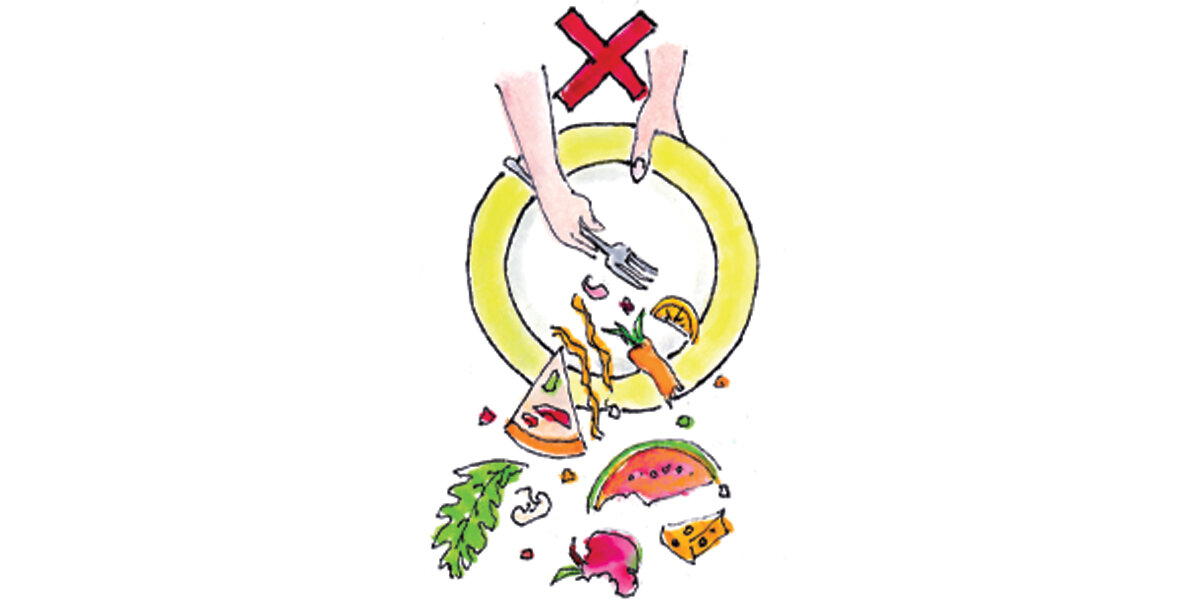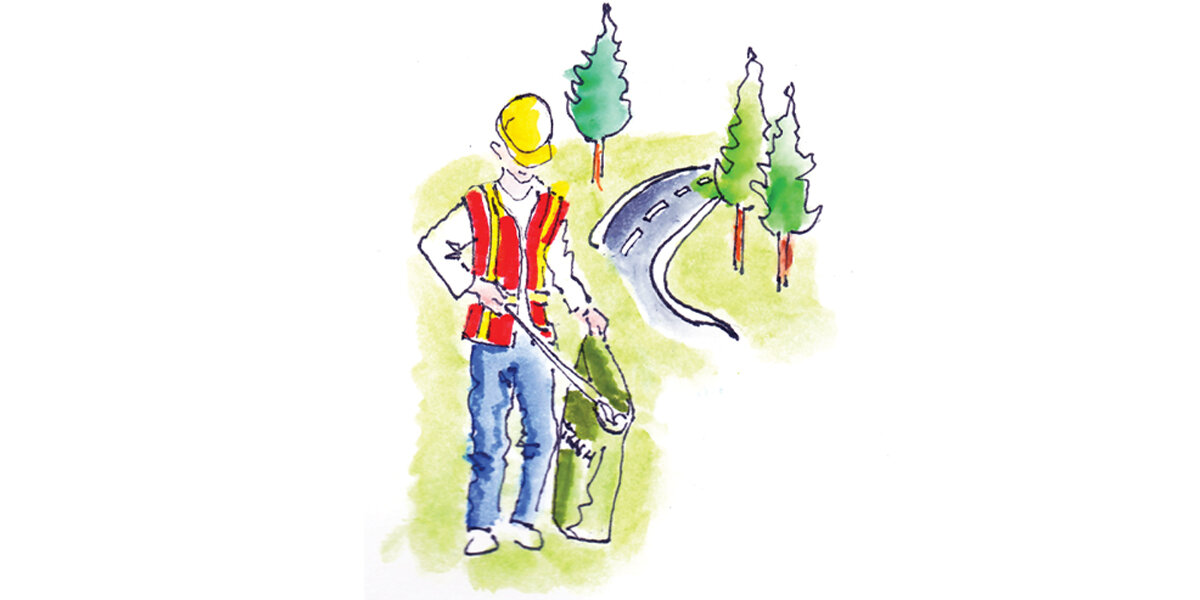Overwhelmed by climate change? I started by changing me.
Loading...
From my earliest days, I’ve been encouraged to steward the Earth. In school, the familiar adage “reduce, reuse, recycle” was drilled in us. We planted trees on Earth Day. Every year we plodded through the 2-mile stretch of the highway my church adopted, filling our bags with takeout containers, old magazines, and other debris.
As the planet continued to heat up through my adolescence and young adulthood, I realized we were now facing a global crisis. As an adult, I was surprised to learn that my lifestyle wasn’t as sustainable as I had thought. The more I learned, the more I realized I had underestimated how much my way of life was contributing to climate change. I wanted to do my part to make it better, and as a journalist I had an excuse to call experts to see how I might make a difference.
“If we change every person’s behavior, we change the world,” says Rebecca Benner, managing director of climate programs at The Nature Conservancy.
Why We Wrote This
When monumental problems feel daunting, finding agency in our corner of the world helps us regain a sense of control. As our writer learned, a collective of people acting locally is powerful.
During our conversation, I told her about my desire to adopt more sustainable practices. The hardest part, I confided, is feeling that it’s never enough.
“This is the biggest, thorniest, scariest issue that I think humanity has ever confronted,” says Dr. Benner. So what do you tackle first? she asked. Do you reduce your travel? Change the way you shop at the supermarket? The clothes you wear?
“Every choice you make has a climate impact, and it’s really hard to know how to change your lifestyle to have an actual positive impact,” she says.
I asked her how she manages this in her own life, as someone working on the front lines of trying to reduce climate change. She sighed.
“So I make choices that I can do with my family that, yeah, inconvenience us a little bit, but aren’t so big and dramatic that it turns our entire life upside down,” Dr. Benner says.
They live rurally, so giving up their car isn’t an option. But she’s discovered other things they can do, such as flying less, using reusable water bottles, and “going deep” in scrutinizing the types of chemicals they use at home.
When I reflected on the changes in my own life that have stuck, I saw a pattern: I took one small habit and adjusted it; when that became my new norm, I adopted another. About 10 years ago, I made the switch to reusable bags. It was awkward at first, and I often forgot them. Now it’s second nature.
Sean Ellis says his team researches how best to encourage people to adopt beneficial practices into their lives, whether it’s related to health, education, or even climate change.
“How can we nudge people? How can we get people to change their habits, to maintain new habits?” says Dr. Ellis, director of analytics at the Behavior Change for Good Initiative at the University of Pennsylvania.
One way to do this is to highlight something everyone cares about: their finances.
“If I use less electricity at my house, I’m paying less on my electric bill. If I’m using less water, I’m paying less on my water bill,” says Dr. Ellis. This awareness affects consumer usage.
I remember receiving a note from my utility company one month letting me know my electric usage was double that of my neighbors. I was shocked, and it prompted my family to remember to turn off the lights when we leave the room.
Leaning into other practices that alleviate stress on the environment and my wallet has become a fun challenge. I made it my New Year’s resolution a few years ago to buy my clothes secondhand. I discovered my local Everything Is Free Facebook group where members of our community give and take items freely. When my son was born, a local mom gifted me cloth diapers. Most of my son’s toys are from this group, and when he outgrows them we pass them on to the next family. Recently a woman from the other side of town offered me milkweed seeds to plant in my yard for pollinators. The group has created an ecosystem of care, sustainability, and support.
Social pressure can be a huge motivator for habit change, says Yasmine Kalkstein, a professor of psychology at the U.S. Military Academy at West Point. It’s much easier to adjust your habits when it’s the social norm.
“Remind people that almost everybody else is doing it, so why aren’t you?” says Dr. Kalkstein. Those small changes, traveling from person to person, can add up to a big difference.
“One bag doesn’t seem to do a whole lot. But what if I looked at it like, I am currently reducing my waste by 400 plastic bags a year? Whoa, that’s huge.”
Dr. Kalkstein mentioned a study regarding hotel towels. Simply pointing out that a majority of guests reuse their towels encourages others to do the same, reducing the amount of water and energy required to wash them every day.
Now, as I look around and see the ways I can continue to make changes in my life, I don’t feel so hopeless. I feel motivated hearing about the ways that others are taking baby steps. Getting one toy secondhand won’t save the planet, but it might continue to move the needle toward the lifestyle shift we need. I’ll be part of a collective of people who are doing their best to adopt sustainable practices, one small change at a time.
“When we have the right mindset that we can grow, we can change – I think we are more likely to change,” Dr. Kalkstein says. “That’s empowering.”








